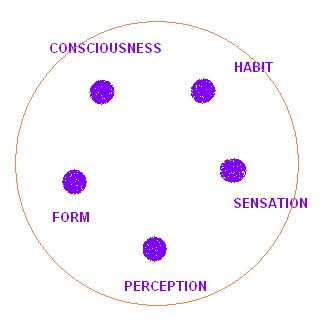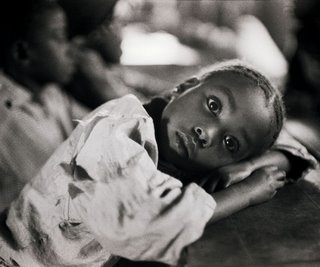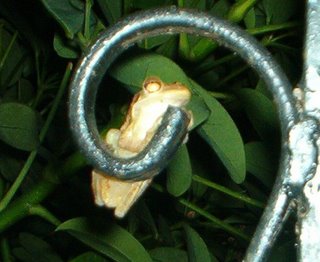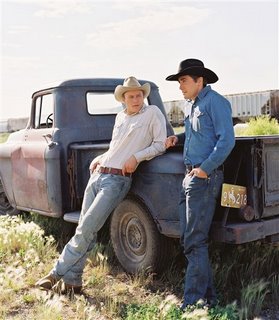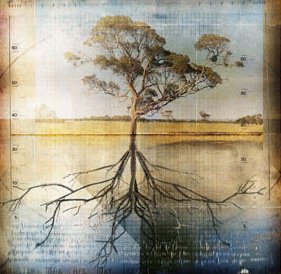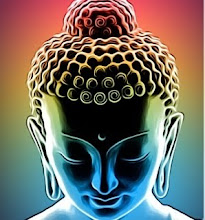 Gareth
Gareth and
Will have posted some brilliant, stimulating discussion on the principles of karma and dependent occurrence (
pratitya samutpada). Gareth sums up the discussion thus:
Will’s most recent post at ThinkBuddha, Conditions, includes a wonderful summation of Karma, although he doesn’t use that word, and pratitya samutpada; dependent arising. In his post Will asks: How many conditions are sufficient to give rise to any particular event: what value for n will give us a complete set of conditions?
He then takes us through the logic, and concludes that:
So it seems that only n = ∞ will give us a complete set of conditions for any particular arising
Or to put it another way, any event is dependent on an infinite number of conditions. I find it impossible to comprehend how vast and complex this web really is. And yet every day it’s essential that I try.
I reduce the world in to manageable chunks, trace back the conditions as far as I’m able, or as far as seems reasonable, and then think I understand the cause behind and effect. How else can I move forward?
I've thought a lot about these questions today. Since it is indisputable that "only
n = ∞ will give us a complete set of conditions for any particular" event, it is impossible for my mind (or any individual consciousness) to identify all of the conditions predicate to a given event. However, I believe that Right Mindfulness offers the best possible way of working through the thicket of causation and occurrence.
If I open my heart, mind and consciousness to observe all of the phenomena of the present moment, I can be aware of most if not all of the conditions that are truly within my control. Those things which I cannot control, either because they are beyond my reasonable ability to affect (like the weather, the price of skim milk in Nashville or the outcome of elections in Kazakhstan) or because I am not aware of them (like who is going to ring my telephone tomorrow at 4 p.m.), are not things for which I accumulate any
karma.
However, if I am mindful, I will see that there are things I can control--my actions, my thoughts, my feelings and my speech--which in turn can affect future events, proximately or otherwise. These are the things for which I am responsible and these are the things I should focus on as I make my way through this life. However, there is a limit to how even my actions can be proximately linked to events around me.
I heard an interesting blurb on NPR yesterday. A gentleman was explaining how Julius Caesar's last out-breath was comprised of billions (or trillions) of molecules, which left his mouth at the moment of his death and were dispersed into the atmosphere in a very mathematically predictable way. He went on to say that those molecules, in one form or the other, are still floating around somewhere--at the bottom of the ocean, in the air, in the soil, etc.--and that every breath we take likely contains one or two of the trillion molecules that Julius Caesar exhaled when he died on the floor of the Roman Senate on March 15, 44 B.C.E.
When I heard this I thought it was an apt metaphor for the causal relationship between my acts and the lives of people halfway around the world. It is possible that the half-gallon of skim milk I bought tonight may indirectly affect the lives of innumerable people whose lives were touched by the milk, the cow, the truck that carried them, the truck driver who drove the truck, etc. However, since it is beyond my comprehension to identify all of those causal relationships, it would be paralyzing to analyze the impact of my actions on the innumerable events to which it relates.
I believe it is fair to say that the best I can do is be mindful. So, for instance, I minimize the number of trips I make to the market by car, I recycle the plastic container, I buy organic when I can, I shop at the store that pays their employees most fairly, I treat the checkout lady and bagging clerk with kindness, etc. I do not believe it is a cop-out. I believe it is a reasonable use of my limited mental and emotional resources to focus my mindfulness on those conditions that are most proximate to me.
How does the Bodhisattva--a human being, a mortal man or woman--help the sentient beings of the universe achieve
nibbana? One sentient being at a time. The Buddha does not demand omnipotence. He has shown us how to better ourselves and those whose lives we touch by living the Eightfold Path.
We are not responsible for n = ∞. We are responsible for our own thoughts, feelings and actions, moment by mindful moment.
Namaste.


